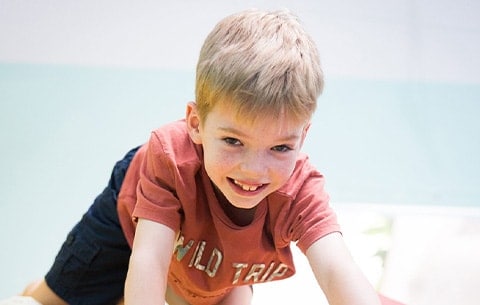An Overview of Child Psychology and Autism
When we speak about child psychology, it’s like comprehending a fascinating, multi-layered story of how a child thinks, feels, and interacts with the world. It’s about understanding their giggles, tears, questions, and silence. Autism, a developmental disorder, adds another complex layer to this story. Imagine a puzzle that alters how a child communicates or interacts socially – that’s autism. In the vibrant city of Singapore, this is a reality for one in every 150 kids, a statistic that brings challenges and unique perspectives to our society. With such a high prevalence, understanding how autism can be detected and how children with autism can be supported is more critical than ever. This article aims to shed light on this essential topic, using information derived from clinical psychology, developmental psychology, and more.
Understanding Autism: A Developmental Disorder Perspective
Imagine you’re at a concert, but instead of hearing the music as a harmonious blend, you hear each note striking on its own. That’s a bit like what it’s like to have autism, often referred to as Autism Spectrum Disorder (ASD). It’s a different way of experiencing the world, where social interactions can be a maze and communication a code to crack. While unusual, repetitive actions might offer solace and help calm an over-active nervous system. It’s important to remember that no two autistic children are alike – it’s a spectrum disorder. They each have unique strengths and challenges, much like each of us has our unique way of dancing to the music of life. Some autistic children might excel in visual skills, music, math, or art, while others might have significant language and social interaction challenges. Developmental psychologists have worked extensively to understand autism, contributing valuable knowledge and helping children, their parents, and society understand and address this condition.
Detection of Autism: The Role of the Child Psychologist
Child psychologists play a pivotal role in the early detection of autism. They are skilled in recognizing the tell-tale signs of autism and can provide the necessary psychological assessments for a child suspected of having the disorder. Early detection is key to improving autistic children’s health and overall quality of life. While a range of behaviors indicates autism, some commonly observed characteristics include difficulties in social interaction, communication challenges, and repetitive behaviors. A child psychologist would look for these signs during their assessment, using standardized gold-standard tests and structured parent interviews to ascertain whether a child falls within the autism spectrum.
Supporting Autistic Children: The Crucial Role of Psychologists and Parents
Once a child is diagnosed with autism, the journey of understanding, acceptance, and support begins. Both psychologists and parents play a critical role in this process. Support for autistic children comes in many forms, including psychological interventions and parent education.
Psychological Interventions
Psychologists in Singapore are well-trained in various psychological intervention techniques to help autistic children manage the disorder. These interventions aim to improve the child’s social interaction skills, language, and communication abilities and to manage challenging behaviours. Research shows that the most effective interventions for autism spectrum disorder (ASD) are intensive, start early, and involve the child’s parents. Applied Behavioural Analysis (ABA) was the go-to treatment for autism. However, feedback from numerous autistic adults indicates that behaviorally oriented approaches can be problematic, even traumatizing, when implemented rigidly. All psychological interventions for children with autism must respect the children and their profiles. Further, successful interventions involve the parents and help the whole family learn how to support the child’s ability to stay calm and engage with people.
Role of Parents in the Child’s Journey
Parents are integral to the child’s development and wellbeing. Their understanding, acceptance, and supportive actions can significantly influence the child’s progress. However, having an autistic child can be challenging. Therefore, parental support and training are vital components of a comprehensive approach to autism. Programs that teach parents strategies to improve their child’s social interaction skills, manage difficult behaviors, and encourage the child’s strengths can be invaluable. With the right information and support, parents can become effective advocates for their children, helping them lead fulfilling lives despite the disorder.
Health and Lifestyle Adjustments for Autistic Children
Beyond psychological interventions and parental support, health and lifestyle adjustments are fundamental in supporting autistic children. Ensuring the child’s physical health is well taken care of and creating an environment that suits their unique needs can help manage autism.
Health Considerations
Autistic children may have co-occurring physical health issues like sleep, gastrointestinal, or mood disorders. Regular health check-ups and close monitoring of the child’s health can help address these concerns promptly. A healthy diet, regular physical activities, and adequate sleep are also important for the child’s overall well-being.
Creating an Autistic-friendly Environment
Creating an environment that respects and accommodates the unique needs of autistic children can go a long way in supporting their development. This could include making adjustments at home, such as creating a quiet and structured space or advocating for accommodations in school and other public places. Schools in Singapore, for example, have special education needs (SEN) resources and support to ensure inclusive education for autistic children. Such adjustments promote inclusivity, acceptance, and improved functioning for autistic children.
Concluding Thoughts
Understanding and supporting autistic children requires a comprehensive approach, bringing together knowledge from child psychology, developmental psychology, clinical psychology, and more. Autism detection and support in Singapore are progressively evolving, emphasising early intervention, psychological support, and lifestyle adjustments. Autism is a complex disorder that can present many challenges. However, with early detection, and appropriate support from psychologists, parents, and the community, autistic children can reach their full potential and lead meaningful lives. The journey may be tough, but with the right support and information, parents can help their children overcome the hurdles that come with autism. Remember, every autistic child is unique, and so is their journey. With love, patience, understanding, and support, we can all contribute to making the world a better place for autistic people.
Frequently Asked Questions
How can a psychologist help a child with autism?
Psychologists are instrumental in assisting children with autism by leveraging their expertise in psychology to understand and address the challenges associated with this disorder. Psychologists evaluate a child’s cognitive, emotional, and social functioning through specialized assessments, creating personalized intervention plans incorporating evidence-based therapies and social skills training. They also support parents and caregivers, offering strategies to manage behavioral issues and communication difficulties while monitoring the child’s mental health and addressing co-occurring conditions.
Psychologists also collaborate with schools to advocate for appropriate accommodations and develop individualized education plans. They help create inclusive environments that meet the child’s unique needs while empowering children with autism to develop life skills, improve social interactions, and enhance emotional regulation abilities. Psychologists play a vital role in promoting children’s wellbeing and overall functioning of children with autism through their psychological expertise and understanding of the disorder.
Do psychologists detect autism?
Psychologists play a crucial role in detecting autism in children by utilizing their psychological expertise and assessment tools. Through careful observation of a child’s behaviors, communication skills, and social interactions, psychologists can identify potential signs and symptoms of autism. They consider various factors and gather information from parents and caregivers to make an accurate diagnosis. They recognize that the detection process is ongoing as a child’s behaviors and symptoms may change.
Moreover, psychologists not only detect autism but also provide valuable support and guidance to parents in navigating the challenges of raising a child with autism. They offer insights into effective parenting strategies, behavior management techniques, and available resources to promote the child’s development and overall well-being. In summary, psychologists play a vital role in detecting autism, using their expertise in psychology to assess a child’s functioning, identify the disorder, and provide ongoing support throughout the diagnostic and intervention process.
How do child psychologists identify autism?
Child psychologists utilize their expertise in psychology to identify autism in children through a comprehensive assessment process. They observe and analyze a child’s behaviors, communication skills, and used various standardized tests to determine if they exhibit characteristics associated with autism. Psychologists accurately diagnose the disorder by considering various factors and gathering information from parents and caregivers. This process is dynamic, as psychologists monitor changes in a child’s behaviors and symptoms over time.
Moreover, child psychologists provide crucial support to parents, offering guidance on effective parenting strategies, behavior management techniques, and available resources. They play a significant role in identifying autism, utilizing their psychological knowledge and assessment tools to assess children’s functioning and provide ongoing support throughout the diagnostic and intervention process.
What type of psychology works with autism?
Developmental psychology is the primary field that works with autism. Developmental psychologists focus on the growth and changes in children over time, including those with autism. They strive to comprehend the challenges these children may face due to autism, a developmental disorder, and aim to alleviate their difficulties.
In working with autistic children, these psychologists provide valuable insights and interventions designed to support these children in overcoming their unique challenges. The ultimate goal is to enhance the lives of children with autism, making developmental psychology a pivotal discipline in autism care and support.





